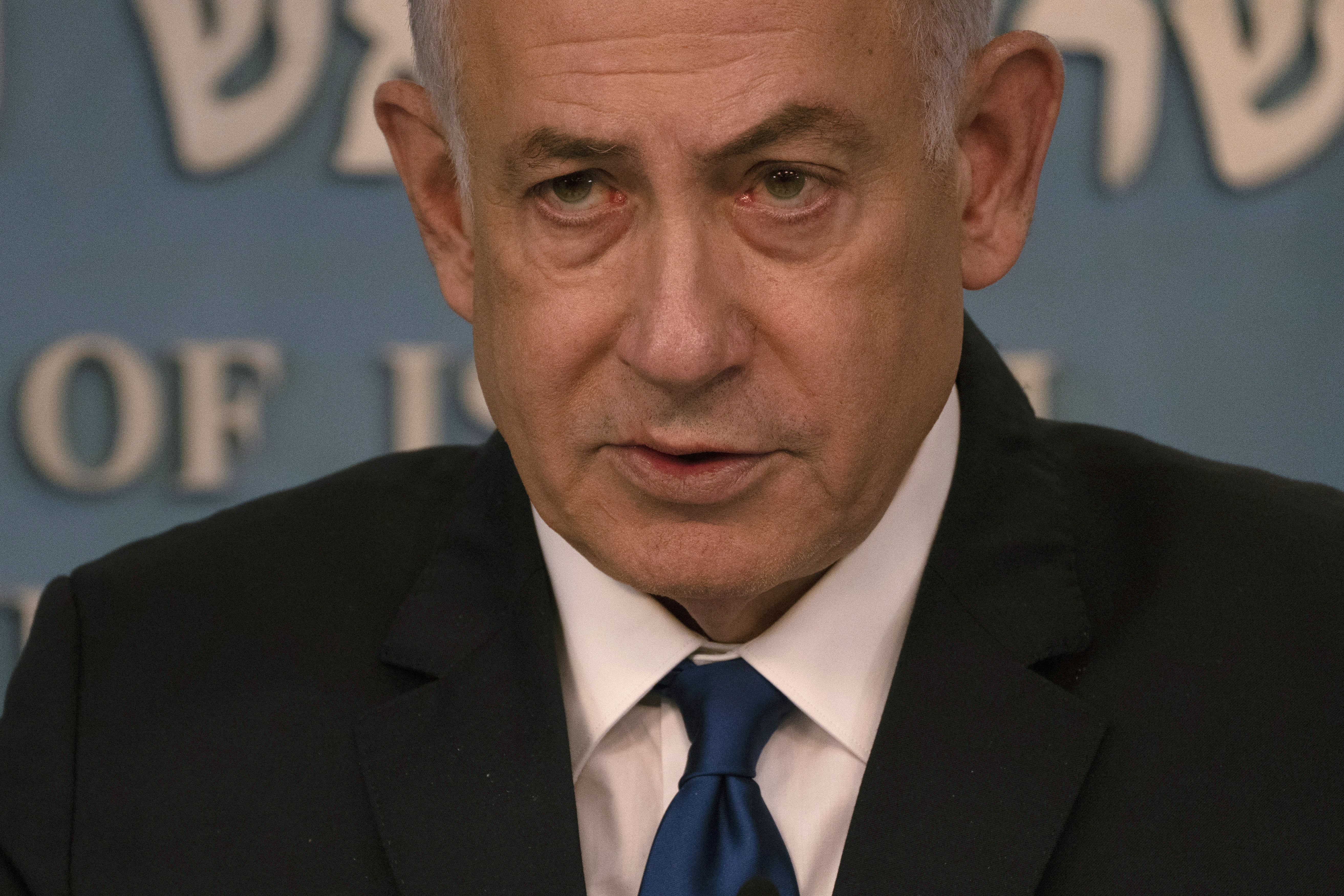The three hostages released as part of Israell’s temporary ceasefire with Hamas -- females Emily Damari, Romi Gonen and Doron Steinbrecher – were said to be in good condition.
Both sides signed off on the three-stage ceasefire last week.
Outgoing U.S. President Joe Biden quickly took credit, and although the deal includes some framework presented by his administration last May, Damari’s mother created a TikTok video thanking Donald Trump.
 “President-elect Donald Trump, you’ve really made my dream come true, but it’s not over, my dream is still going on until I see Emily and all of the other 98 hostages back in Israel,” Mandy Damari said.
“President-elect Donald Trump, you’ve really made my dream come true, but it’s not over, my dream is still going on until I see Emily and all of the other 98 hostages back in Israel,” Mandy Damari said.
While many Israelis celebrated, masked Hamas terrorists carried machine guns and wore military uniforms, not the attire they wore during the attacks or subsequent fighting.
“During war they wear civilian clothes, hide among civilians, and when killed count it as civilian deaths,” wrote Dr. Eli David, a Jewish AI researcher and investor.
Twenty-four of 32 ministers in Prime Minister Benjamin Netanyahu’s coalition government voted in favor of the deal last week.
Last June 60% of Israelis supported the idea of a deal with Hamas in order to return hostages. Joel Rosenberg, a noted journalist and regional analyst, said on American Family Radio Monday that number had increased.
But the number is not unanimous.
“The fight against Hamas is not over. We're winning, but we're going to have to pause here to get our people home, and it comes at a price. It’s a price that 73% of us are willing to pay, but one of Netanyahu's coalition members, they’ve quit, and they’re threatening to bring down the whole government because they don’t want to be part of this deal,” Rosenberg told show host Jenna Ellis.
The crisis that necessitated a ceasefire began on Oct. 7, 2023, when Hamas terrorists launched an operation from Gaza into Israel where they killed more than 1,200 and abducted more than 240.

Babies were killed. Others who were left behind were raped or brutalized.
Rosenberg said the support level for bringing the hostages home exceeds the level of harmony Israeli’s typically reach in the complex life conditions they’re forced to face.
“Rarely do Israelis or Jews agree to almost 75% on anything, but here we do,” he said.
Even as it involves negotiating with terrorists, bringing the hostages home right now is the right thing to do, Rosenberg said.
These are not your typical negotiations.
“Trump got people back, and he negotiated, but he didn’t give up money, he didn’t fork over cash. There’s a difference,” Rosenberg said.
For some it looks like acquiescing to terrorists, something that could inspire them to attack Israel again.
 But the humanitarian considerations are too great. Israel is in control and has the ability to take care of its people. While that means nothing to Hamas, it means something to Israelis.
But the humanitarian considerations are too great. Israel is in control and has the ability to take care of its people. While that means nothing to Hamas, it means something to Israelis.
“Hamas is satanic, so we're making a deal with the devil, but the country, after 15 months of war, has made a decision. We know what we're doing, but we still say, ‘what if it was us? What would we would want someone to do for us, which is come get us, get us out, and we'll all live to fight another day,” Rosenberg said.
The other thing that makes this arrangement agreeable to most Israelis is the last part. They know they can fight another day, even as the prisoner releases mean terrorists returning to the fight for Hamas.
“We’re crushing Hamas. We’re crushing Hezbollah. We’ve made huge hits against the Iranian regime. My point is, we’re winning.”







